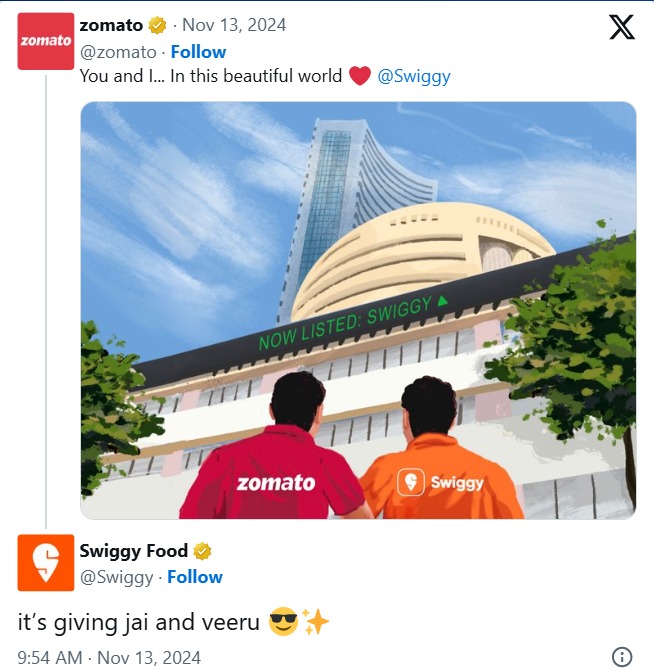Quick Commerce: A Tale Of Velocity, Valuations, And Vanity

In the enchanting landscape of Indian commerce, a new tale is emerging, in which one promise of instant gratification through quick deliveries meets the harsh realities of economic sustainability! The phenomenal spike of quick commerce, with its tempting promise of 10, 15-minute deliveries, has become the latest, and most coolest chapter in our ongoing romance with digital transformation. But beneath the glossy surface of soaring valuations and ambitious promises lies a more complex story worthy of careful examination.
Let’s Start With The Symphony of Speed In Quick Commerce
Swiggy’s launch of the Snaac app, which pinky promises food delivery in a mere quarter of an hour, joins the orchestra of rapid delivery services alongside quick commerce pioneer Zepto and market leader Zomato’s Blinkit. This race to cut delivery times to practically, logically, rationally impossible levels represents more than just operational innovation; it symbolizes our collective obsession with immediacy in the digital age. But as we celebrate these technological feats, we must ask: At what cost does this symphony of speed play?
Move On To The Paradox of Prosperity
The current landscape pictures an intriguing paradox. While investors trade stocks with enthusiasm, generating substantial personal wealth, the underlying businesses continue to hemorrhage money through what the start-up ecosystem euphemistically terms “cash burn.” This dichotomy is perhaps most starkly illustrated by Dunzo’s struggles, where founder Kabeer Biswas’s reported contemplation of resignation serves as a sobering reminder that not all that glitters in the quick commerce gold rush is truly golden.

Continuing With The VC’s Favourite Valuation Voyage
In a remarkable testament to market optimism, Zomato commands a valuation of ₹2.4 lakh crores, surpassing even Nestle; while Swiggy’s ₹1.1 lakh crore valuation rivals that of Britannia. These astronomical figures raise an important question: How do companies burn through cash command valuations that exceed those of profitable, established enterprises with decades of operational history?
The answer lies in the market’s perpetual romance with valuation over performance. New-age companies are valued not on their current earnings but on the vast expanse of their “addressable market” and the promise of future dominance. It’s a narrative that has captivated investors, particularly when backed by metrics showing online penetration in food services at just 11% compared to 22% in electronics and 18% in fashion.
Now Mirror With The Painful Reality Check
However, as HSBC Securities’ Head of Research, Yogesh Aggarwal, astutely observes, the exuberance surrounding quick commerce might be built on shifting sands. The projected USD 50 billion gross order value by FY30, predicated on 60 million customers ordering eight times monthly, represents an ambitious capture of the total addressable market in a remarkably short timeframe. This projection, while not impossible, demands careful scrutiny.
You Want The Proof- Here It Is In The Gathering Clouds
Market sentiment appears to be shifting, as seen by market titan Zomato’s 18% decline from its peak and it’s ‘Veeru’ Swiggy’s 20% retreat. These movements suggest a growing recognition that even the most promising business models must eventually demonstrate a path to profitability. The market’s initial infatuation with metrics like “Gross Order Value” and “Total Addressable Market” may be giving way to more traditional concerns about sustainable earnings growth.

What Can We Learn From The Historical Echoes
As Howard Marks, the sage of Oaktree Capital, reminds us, there’s something seductively powerful about newness in market psychology. The absence of historical precedent removes the constraints of past experience, allowing enthusiasm to soar unfettered by practical considerations. We’ve seen this story before—during the dotcom era, when “clicks” and “eyeballs” temporarily replaced traditional valuation metrics.
The Most Important Is To Address The Sustainability Question
The current quick commerce model appears to rest heavily on the continued generosity of foreign venture capital. This raises important questions about long-term sustainability. While the local kirana shops have been delivering groceries efficiently for generations with a simple phone call, the new digital avatars of this service require massive capital infusion to maintain their operations.
Let’s End With A Positive Looking Ahead
The future of the beloved quick commerce likely lies somewhere sandwiched between the extreme optimism of its proponents and the skepticism of its critics. While the sector, without any shadow of doubt, addresses real consumer needs and leverages technological advantages, the business models of the quick commerce titans may require significant refinement to achieve sustainable profitability.
Concluding With The Wisdom of Patience
As we stepped in the new year, it’s worth keeping in mind that the true business value is founded not through temporary waves of market enthusiasm but through sustainable blocks of competitive advantages and profitable operations. The quick commerce sector’s ultimate success will depend not on how fast it can deliver products, but on how effectively it can deliver value to all stakeholders, aka customers, employees, and investors alike.
The quick commerce phenomenon represents more than just a business trend, it’s a mirror reflecting our society’s evolving relationship with convenience, technology, and instant gratification. As the sector matures, we may find that the most successful players are not those who promise the quickest deliveries, but those who build sustainable businesses that balance speed with stability, growth with profitability, and innovation with practicality.
In the end, the question isn’t whether quick commerce will survive, but rather what form it will take once the initial euphoria subsides and economic reality asserts itself. As we watch this transformation unfold, we would do well to remember that in the world of business, as in life, the tortoise sometimes outpaces the hare.





